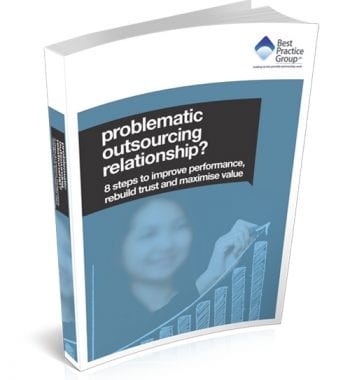 The coronavirus pandemic has created a uniquely challenging environment for organisations, both public and private, to contend with.
The coronavirus pandemic has created a uniquely challenging environment for organisations, both public and private, to contend with.
Forecasts of potential visions of what is to come, will inevitably contain a level of calculated guesses and considered estimations. However, one thing we suspect is that the road to a return to some form of normality is likely to be a long and uncertain one.
It is because of this uncertainty, felt by many of our clients and their strategic partners, that an article from Visual Capitalist, using a Covid-19 risks outlook report from the World Economic Forum as its inspiration, caught my eye.
Three hundred and forty-seven senior analysts were asked what they thought were the greatest threats we all faced over the next 18 months as a result of the Covid-19 pandemic. A report was compiled with their findings.
Report Findings
Within the report, 31 risks were highlighted which fell into 5 categories:
- Economic: 10 key risks
- Societal: 9 key risks
- Geopolitical: 6 key risks
- Technology: 4 key risks
- Environmental: 2 key risks
We have expanded on more details within each of these below.
#1. Economic Risks
Much like the government over the last few weeks has been telling us, the analysts in the World Economic Forum report that the risks that worry them most are economic in nature. Four of the top five, and seven out of the top ten results of the survey are related to the economic impact of Covid-19 over the next year and a half.
The ten economic risks that the analysts cited in order of highest impact were:
- 6% Prolonged global recession
- 8% Increased numbers of bankruptcies and consolidations
- 9% Industries/sectors failing to recover
- 3% High unemployment (especially youth)
- 8% Weakening of major economies
- 1% Long-term supply chain disruption
- 0% Emerging market economic collapse
- 2% Rapid increase in global inflation
- 9% Lower foreign direct investment
- 6% Lower retirement/pension savings
Looking at these economic indicators, there are a number of lessons from previous recessions that world governments are using to inform their actions around financial stimulus. These include the Great Depression [1929–1939], Black Monday [1987], Dot-Com Bubble [2000], 9/11 attacks [2001], Great Financial Recession [banking crisis of 2007–2009] and the Mini Stock Market Crash [2016]. Some are predicting that the current pandemic will result in the worst global recession in a century.
From recent analysis of these economically depressed situations, and in particular, the more recent banking crisis in 2007–2009, world governments are indicating they need to both borrow and invest heavily in government sponsored projects and prop up the financial markets. It appears that the key lesson they believe they have learned is not to leave matters to normal market conditions.
A shaky recovery from over a decade of economic restrictions and the uncertainty of Brexit meant there were already limited funds in the UK’s coffers – certainly nowhere near what was needed for the furlough scheme, the funding for new hospitals, PPE, an evolution of the schooling system and so much more that has been announced or enacted over this period.
The UK government is being bold with its spending, but in fairness, the majority of the world’s economies have acted relatively quickly with similar financial stimuli to fund emergency and future plans to limit, as far as they can, the economic downside caused by this pandemic. In this respect, perhaps most of us can relate to the government’s reasons for the unprecedented levels of borrowing at this time, though it should be remembered that, as taxpayers, we will all need to repay these sums at some point.
In a world of extensive international co-dependencies, the troubles of one nation become the issues of another. As supply chains stumble and developing economies struggle, with many still not yet at the peak of their own pandemic, I suspect we have still yet to see the full impact of this economic fallout.
#2. Societal Risks
Economic issues cannot be considered in a vacuum. They are impacted by numerous factors: how society feels about business is a major one. We have all seen a rise in anxiety, anger and societal unrest over the last few months and some of this can clearly be attributed to the impact of Covid-19. The nine major societal risks identified by the senior analysts in the survey indicated those risks were within a core approximation of one another. In order of impact, they were:
- 8% Another disease outbreak (Covid-19 or something else)
- 3% Erosion of civil liberties
- 9% Worsening mental health
- 3% Increasing inequality/social divisions
- 4% Increased distrust in government and politicians
- 4% Weakened national social security systems
- 7% Healthcare costs increasing and effectiveness decreasing
- 1% Failure of education/training to adapt to long-term crisis
- 2% Increased anti-business sentiment
With the TV news covering protests, riots, statues toppling, the reported rise of the far right and left, a reported spike in the outrage of racism alongside social media focus on disgust with individual politicians for their actions and words as well as political parties themselves, it seems that the analysts were aligned in these visions of the future.
With lockdowns easing, world governments are desperately trying to balance economic recovery with health risks, by trying to get people back to work safely. However, residual fear of the virus will mean there are some who will worry about going back to offices, getting onto public transport or meeting with clients/customers.
For the fiscal engine of the country to restart with any sustainability, it’s vital to minimise the impact on unemployment and, where possible, increase productivity at the earliest practical opportunity. But the societal issues highlighted above will be, not unreasonably, pushing against this.
#3. Geopolitical Risks
The geopolitical risks of the next 18 months could be summed up as increased nationalism. Those governments that are more inward looking, who either do not have the funds to look outwards or react more favourably to growing public opinion that issues at home need to be handled first, are suggesting that global support should be put on the back-burner.
The survey came up with six major geopolitical risks, and in order of importance they are:
- 7% Restrictions on movement/travel
- 2% Geopolitical exploitation of Covid-19
- 6% Worsening humanitarian crisis
- 0% Nationalisation of strategic industries
- 8% Failure to support and invest in global crisis response
- 3% Worsening existing military conflicts.
Unfortunately, many developing economies, along with charities and others, are reliant on the help they get from more developed nations. The knock-on effect of funds drying up will mean greater economic and societal issues in those nations. In turn, this will have an economic impact on countries that rely on them as part of their supply chain – which is most of the rest of us.
#4. Technology Risks
We have all been increasing our reliance on technology steadily over the last 50 years or more. The parallel evolution of technology and our own adaptation of social and working practices to keep up with this change is important.
As we’ve seen over the last few months, abrupt change can throw us into disarray with opportunists and activists abusing systems, commerce struggling to cope and too few people with the right expertise to keep those systems working. Sustained pressure of this type can lead to real and significant risks of parts of the economy collapsing.
On one hand, the fact that technology has advanced to such a degree that enables some to continue working and maintaining their relationships is a godsend. But on the other, for those individuals or roles unable to embrace those technologies, the change has seemed rapid and all-consuming. This leads to a risk that the pace of change may be too quick for some parts of society and businesses to keep up with, leading to the four risks the analysts highlighted below:
- 8% Increased cyberattacks and data fraud
- 8% Increased automation-related unemployment
- 8% Abrupt adoption and regulation of technology
- 9% Breakdown of IT infrastructure and networks
#5. Environmental Risks
The environmental risks highlighted by the senior analysists in the survey, relate to the same background issues that the geopolitical risks point to. This is a reprioritisation of efforts and funds to inward-looking projects.
The analysts fear that environmental projects and aspirations – which had finally reached the ‘top table’ in recent years, thanks to the attention to the topic that groups such as Extinction Rebellion and activists such as Gretta Thunberg have achieved – will once again be pushed down in the pecking order behind more pressing health and economic issues.
From some perspectives, you could consider that environmentalists are fighting a losing battle right now. These include dual battles of diversions of funds and attention away from them towards ‘more pressing’ matters, plus the media regularly sharing stories of cleaner air due to transport restrictions and industrial closure during lockdowns.
Of course, this ignores the increase in waste that is being created by families during this crisis, reduction in recycling, increase in fly-tipping, and when we start to go back to work, the likelihood of a practical abandonment of public transport for our own cars again and a resurgence in greenhouse gases as industry restarts.
The risks the analysts have cited were:
- 2% Failure to invest in climate strategies
- 6% Decline in global decarbonisation efforts
Conclusion
We would have to agree with much of what the World Economic Forum survey has highlighted. The economic risks are significant, but we must not forget that the societal, geopolitical, technological and environmental risks are just as real and often filter up to create an economic impact too.
Whether you are on the supplier or client side of the room, you are likely to be impacted by the risks and opportunities highlighted here over the next year and a half. Strategic suppliers that are staying ahead of the game are likely to be impacted positively, with great opportunities to advise clients on how they can support them in approaching service delivery in a much more innovative and economic fashion. Any strategic suppliers not keeping ahead of the game are likely to suffer from projects and relationships with increasing delays, quality issues, shifting priorities and supply chain challenges.
So, if you get wind of your strategic suppliers struggling, it’s important to bear in mind the factors noted above, then to consider the support you might wish to offer them for your mutual benefit.
Photo credit: iStock

